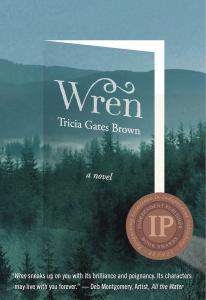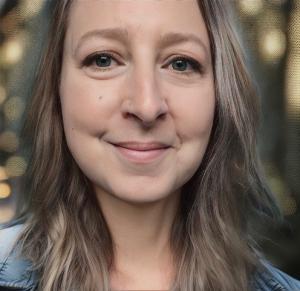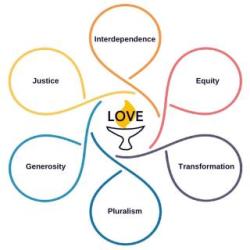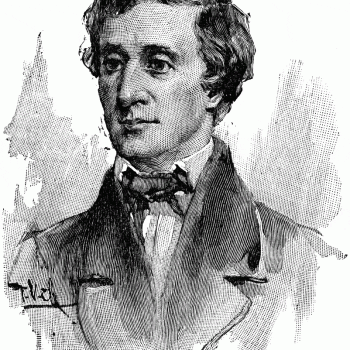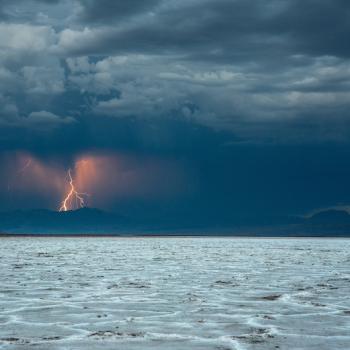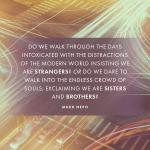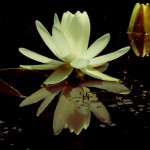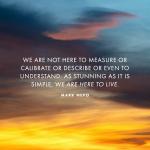
{A meditation on Mark 6:1-13}
Jesus was a small-town guy. His village of Nazareth had a population of just a few hundred people. And I want to give a sense distance as we think about the stories in the gospels. Because most of Jesus’ ministry and teaching took place around the Sea of Galilee; and the distance from the Sea of Galilee to Jesus’ hometown of Nazareth was roughly 30 miles. These were tiny communities, in which everyone likely knew each other.
So imagine you heard that a young woman from your local area, say a daughter of a local farmer, had discovered the cure for cancer. You didn’t even know she studied science! And the local gossip is: “Ashley, the farmer’s daughter has discovered a cure for cancer!” Now, would you need to be convinced?
You had identified this young woman along the lines by which we usually identify people; and these identifiers did not presuppose you to believe she’d cure cancer. This is the kind of predicament Jesus was in as he commenced his ministry. No one expected a wonder-worker, let alone a teacher of profound and profoundly challenging spiritual wisdom to come from the little village of Nazareth. But despite the incongruence between where Jesus came from (his identifiers) and who he became, Jesus knew where he belonged and to whom he belonged.
A sense of belonging makes all the difference. When I look out at the tensions and struggles boiling up in the world and in our own country, it seems to me that identity is often central to the issue. So often, it seems, people do not know who they are. And we must always first know who we are. …Who are you? Real identity seems to be about having a sense of belonging. Where I experience a sense of belonging says far more about me than my demographics or the categories I fall into. Where do you experience a sense of belonging?
Today, sadly, many people don’t really feel they belong anywhere. But because belonging is so critical for our lives—because it give us the power to do what we need to do, people grasp at a false sense of belonging, grasping for a sense of identity that will give them power and make them feel safe. People go to race and political parties and nation in their quest for identity. Others go to consumerism and define themselves by what they own. The results can be very destructive.

Connection Without Exclusion
John Paul Lederach, a Mennonite who has done transformational work among different groups globally, talks about the need for us to develop “boundary-less identity”—or a sense of belonging that does not exclude other people. Yes, we need a sense of who we are in relationship to others, we need connection. But we need to understand that having a rich sense of belonging does not require having boundaries and identities that keep other people out.
Jesus was all about the “we” that does not exclude people. He was always challenging different boundaries, even as people continually used boundaries and categories to exclude him. How do we develop a strong sense of belonging while also including others and not pushing anyone out? I think this is one area where spiritual traditions are important. They teach that we are all children of God, we are all family. Everything belongs. But identity and belonging are also where we are challenged. How do we practice boundary-less belonging? How do we become a “we” that does not exclude?
Wren, winner of a 2022 Independent Publishers Award Bronze Medal
Winner of the 2022 Independent Publisher Awards Bronze Medal for Regional Fiction; Finalist for the 2022 National Indie Excellence Awards. (2021) Paperback publication of Wren , a novel. “Insightful novel tackles questions of parenthood, marriage, and friendship with finesse and empathy … with striking descriptions of Oregon topography.” —Kirkus Reviews (2018) Audiobook publication of Wren.


